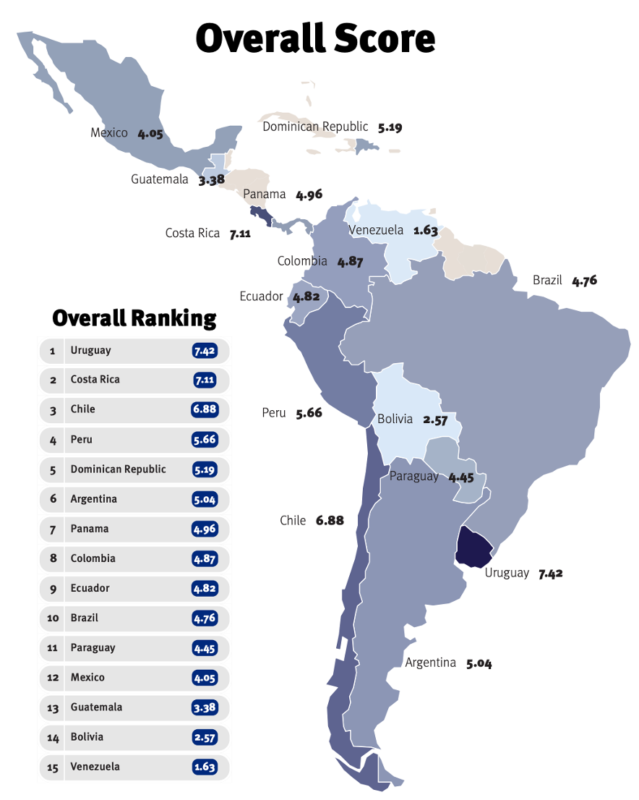
Yesterday AS/COA and Control Risks presented the fourth edition of the Anti-Corruption Capacity Index (CCC) which explores the capacity of 15 Latin American countries to detect, punish and prevent corruption.
The CCC Index analyzes 14 key variables, such as the independence of judicial institutions, the strength of investigative journalism, and the level of resources available to combat white-collar crime. These variables are divided into three categories: legal capacity, democracy, political institutions, and civil society and media. The overall country scores are a weighted aggregate of these three categories.
Countries with higher scores are more likely to see corrupt actors prosecuted and punished.
This year’s ranking is:
Uruguay (7.42 out of 10)
Costa Rica (7.11)
Chile (6.88)
Peru (5.66)
Dominican Republic (5.19)
Argentina (5.04)
Panama (4.96)
Colombia (4.87)
Ecuador (4.82)
Brazil (4.76)
Paraguay (4.45)
Mexico (4.05)
Guatemala (3.38)
Bolivia (2.57)
Venezuela (1.63)
This year, although Uruguay showed a decline in its score for the first time since the launch of the Index, it is the country that remains the best rated and occupies a first place for the fourth consecutive year. Followed by Costa Rica and Chile, which remained in the top three, with Costa Rica in second place and Chile in third, which was the opposite in the last edition, with Costa Rica showing a 10% increase in its score, up from Chile’s 5%.
In addition, the last rated countries, Guatemala, Bolivia, and Venezuela remained the same as in 2021, although the latter two have shown a slight improvement in civil society and media.
Within the 15 countries measured, 4 experienced significant decreases in their scores: Uruguay, Argentina, Brazil, and Mexico, where the scores of the last three have decreased every year since the first edition in 2019, with Argentina and Mexico dropping one place in the ranking and Brazil moving from sixth to tenth place.
On the other hand, the Dominican Republic experienced the largest improvement in its score, continuing a two-year upward trajectory, advancing 5 places since the last edition.
It is important to note that the goal of the CCC Index is not to shame or single out countries, but to foster a policy-driven debate, helping governments, civil society, and the private sector to identify – through data and sound methodology – areas of success and shortcomings that need to be addressed.










